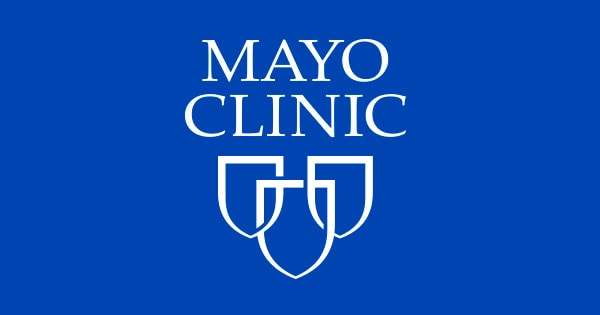You’ll need substantial experience of working with children and adolescents in a social care, health or education setting to work as a child psychotherapist
As a child and adolescent psychotherapist, you’ll provide psychoanalytic, psychotherapeutic assessment and treatment to infants, children and young people up to the age of 25 with a range of mental health difficulties. These can include:
- depression
- anxiety
- development delay
- phobias
- aggression
- gender dysphoria
- consequences of child abuse
- self-harming
- learning difficulties and disabilities
- eating disorders
- psychosomatic disorders.
You’ll use a multidisciplinary approach to work within the context of the child’s life, for example their family or school. Your relationship with the child is central to treatment.
You may see a child individually, in a group with other children, or with parents or other family members. You may also see parents or carers without the child being present.
Child and adolescent psychotherapy is a core profession within Child and Adolescent Mental Health Services (CAMHS).
Responsibilities
As a child and adolescent psychotherapist, you’ll need to:
- provide specialist psychotherapeutic assessments of referred children, young people, parents and carers to assess the most appropriate treatment
- develop specialist programmes of care and provide psychoanalytic, psychotherapeutic treatment to children and adolescents either individually or in a group
- carefully observe children and young people and respond to what they might be communicating through their behaviour and play
- tailor your approach to the individual child and work in an age-appropriate way. You might use play or drawing techniques with younger children, but talk about feelings with teenagers
- ensure that treatment is integrated with the work of other professionals in the wider multidisciplinary team
- provide short-term and long-term interventions with children, young people and/or parents, from a few sessions to regular appointments over several years
- attend core group meetings and work alongside other professionals in planning how best to help a child and the child’s family, for example in schools, hospitals, children’s services and child protection agencies
- regularly review and monitor the outcome of assessments and effects of treatment
- work as part of multidisciplinary teams made up of psychiatrists, psychologists, social workers, paediatric nurses, special educational needs coordinators (SENCOs), family therapists and community psychiatric nurses, most commonly in CAMHS
- offer psychoanalytic, psychotherapeutic advice, training, consultation and supervision to other professionals who contribute directly to the child’s treatment plan
- undertake risk assessments and risk management from a child psychotherapy perspective
- receive regular clinical professional supervision from a more senior child psychotherapist
- supervise trainee child psychotherapists and other therapists
- plan service delivery in conjunction with commissioners and develop new services
- keep up to date with developments in theory and research and undertake continuing professional development (CPD).
Salary
- NHS pay scales apply to the majority of child and adolescent psychotherapists who are employed in NHS CAMHS or other mental health services. Psychotherapist trainees can earn £32,306 to £39,027 (Band 6).
- Qualified child and adolescent psychotherapists can expect salaries in the region of £40,057 to £45,839 (Band 7).
- Principal/lead psychotherapists will be paid at Band 8 of the NHS pay scale, starting at £47,126 and rising to £90,387 for the most senior posts.
There is no standard scale of fees in private practice and the fees you charge can vary depending on your client base, experience and location, for example. Some psychotherapists may provide low-cost therapy for unemployed or low-income clients.
Income data from Agenda for Change (AfC) pay rates. Figures are intended as a guide only.
Working hours
Working hours within the NHS are generally regular. You may need to work extra hours to attend meetings, run training sessions or take on additional private practice activities. There may be times when you need to be flexible and work some evenings or weekends.
What to expect
- Many child and adolescent psychotherapists have several part-time roles, such as working for the NHS, the voluntary sector, schools, social services or local authorities, or in private clinics.
- Opportunities for work tend to be in cities and large towns. The number of jobs within the NHS varies between regions.
- The work can be emotionally demanding and a support framework is essential.
- You may need to travel locally during the day if you work for more than one organisation, have consultancy commitments, are involved in training or need to attend meetings. However, time spent away from home is uncommon.
Qualifications
Before training to become a child and adolescent psychotherapist, you must first undertake pre-clinical studies by completing a course of observational psychoanalytic studies at postgraduate diploma, Masters or equivalent level.
Courses are offered at schools accredited by The Association of Child Psychotherapists (ACP) and usually take two (Diploma) or three (Masters) years to complete.
You’ll need an honours degree (or equivalent) and substantial experience of working with children and adolescents to get a place. This experience can be from a range of settings, including social care, health and education.
After your pre-clinical studies, you must complete four years of clinical training, which covers theory, technique and clinical practice under supervision. Training usually leads to a Professional Doctorate in Child and Adolescent Psychoanalytic Psychotherapy (DPsych).
The NHS provides a limited number of clinical training posts, offered by a small number of NHS trusts or as a partnership between a trust and a training provider. These posts provide paid training and additional support.
Areas covered during the training include:
- long and short-term psychoanalytic work with children, young people and parents
- assessments and work with groups and families
- consultation with other professionals.
Personal psychoanalysis or psychoanalytic psychotherapy is an essential requirement of clinical training. It’s usually begun at least one year before you start clinical training and continues throughout the training process. You’ll typically undergo four or five sessions of personal analysis per week.
Once qualified, you must register as a member of the ACP and appear on the ACP Register of Child Psychotherapists, which is accredited by the Professional Standards Authority.
For more information and a list of training schools and pre-clinical courses, see ACP – How to Train.
Skills
You’ll need to have:
- sensitivity, empathy and a genuine interest in the emotional problems faced by children, adolescents, young people and their families
- excellent communications skills to be able to relate to children, young people and their families, as well as colleagues
- the ability to cope with the extremes of human emotion, ambiguity and vulnerability
- the ability to work on your own and as part of a multidisciplinary team
- resilience, to withstand being overwhelmed or burdened by your clients’ problems
- the capacity to differentiate your personal feelings and emotions from those of the child or adolescent
- confidence to help children and adolescents explore difficult and painful aspects of their life
- experience of working in a constantly changing environment
- the ability to prioritise your work and manage changing priorities
- organisation skills and the ability to manage your own workload
- self-motivation
- leadership qualities in order to support team members and trainees.
Advertisement
Work experience
Personal suitability is extremely important and this is judged on experience. You’ll usually need a minimum of two years’ work with children of varying ages or families in a voluntary or professional capacity.
Child psychotherapy is a second career for many people who come from a range of backgrounds, including:
- medicine
- nursing
- psychiatry
- psychology
- social work
- teaching.
Find out more about the different kinds of work experience and internships that are available.
Employers
The majority of child and adolescent psychotherapists work for the NHS in CAMHS, community-based clinics, such as the child and family consultation service, or in hospitals.
Other work environments both within and outside the NHS include:
- eating disorder services
- forensic services
- learning disability teams
- looked-after children teams within social services
- perinatal services
- pre-school, primary and secondary schools
- specialist and residential units
- student health services
- youth justice services
- voluntary sector.
Many therapists are employed by more than one type of organisation, for example the NHS, private clinics and voluntary organisations.
A small percentage of therapists are self-employed and work exclusively in private practice. If you choose to work in private practice, you must follow strict guidelines, organise your own insurance, provide practice premises, pay your own income tax and arrange clinical supervision.
A small number also work in training institutions or in universities as lecturers and clinical tutors.
Look for job vacancies at:
Details of job vacancies are made available to members of the ACP.
Professional development
In order to retain your membership of the the ACP, you’ll need to undertake continuing professional development (CPD) to keep up to date with clinical and theoretical advances.
Relevant activities may include:
- work-based learning – supervision, in-service training, peer review and discussion with colleagues
- professional activity – involvement in a professional body, lecturing and teaching, presenting at conferences
- formal training and education – top-up courses, submission of papers to a journal, undertaking research
- self-directed learning – reading professional journals and updating your knowledge via the media
- relevant short courses – in areas such as cognitive behavioural therapy (CBT), confidentiality and report-writing, special interest work and current child protection guidelines.
Accredited training schools provide post-qualification courses and workshops. Charities working with children and young people, such as YoungMinds, may also run relevant short courses.
You must also undertake a minimum of 12 hours per month of psychotherapeutic contact with children and young people or parents and families. This should include individual psychotherapy with three individual cases.
It’s also important to carry on receiving individual clinical supervision from a consultant child psychotherapist or other senior member of the profession. The number of hours needed in supervision depends on your experience.
Career prospects
Child and adolescent psychotherapy is a small and specialised profession, so opportunities for advancement will vary depending on your areas of specialism, experience and willingness to relocate.
If you’re working in the NHS for a CAMHS team or other related setting, there are opportunities to develop specialisms in areas such as:
- eating disorders
- forensics
- learning disabilities
- looked-after children
- neonatal work
- parenting groups.
There are opportunities to take on managerial responsibilities in a service leadership role within NHS mental health services, or you could move into a supervision, teaching or research role.
If you’re working in private practice, your success will depend on building a reputation and a network of contacts. You’ll need a good head for business, as well as administration and marketing skills.
How would you rate this page?
On a scale where 1 is dislike and 5 is like
Something went wrong. Please try again.
Do not fill this in
success feedback
Related jobs and courses
Uni profile
QLTS School
View profile
Uni profile
UWE Bristol
View profile
work experience
Summer Camp Counsellor
- Camp America
- Competitive salary
- USA
View job
graduate scheme
Graduate Programme
- Think Ahead
- Competitive salary
- Various locations
View job



